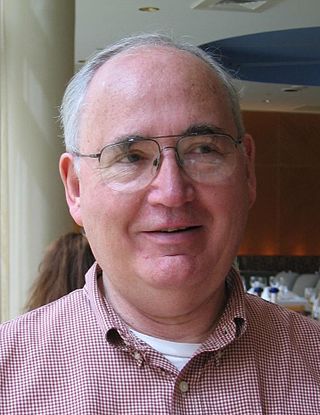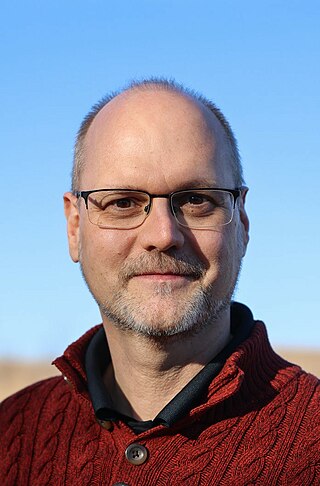Career
He continued to work with Scott as an SRC postdoctoral Research Fellow and Junior Research Fellow of Wolfson College, in Oxford, until 1976, when he moved to the USA, first as a Visiting Assistant Professor of Mathematics at Clark University in Worcester, Massachusetts, then, from 1977 to 1982, as JF Ritt Assistant Professor of Mathematics at Columbia University in New York.
In 1983 he moved, with a Science and Engineering Research Council Fellowship, to the Department of Electronic and Electrical Engineering at Brunel University. He was appointed to a Readership, and then to the Chair of Formal Systems, at Brunel in 1986.
Fourman was co-founder and Technical Director of Abstract Hardware Limited (AHL), a company formed in 1986. He was central in the development of the LAMBDA system (Logic And Mathematics Behind Design Automation) to aid hardware design, a tool implemented in the SML programming language and marketed by AHL. He left the company in 1997.
In 1988 he joined the Laboratory for Foundations of Computer Science at the University of Edinburgh, and was appointed to the Chair of Computer Systems in the Department of Computer Science. In 1998 he was founding Head of the Division of Informatics, which became the current School of Informatics, incorporating the former Department of Artificial Intelligence, the Artificial Intelligence Applications Institute, the Centre for Cognitive Science, the Human Communication Research Centre, and the Department of Computer Science.
He has again been Head of the School of Informatics since August 2002.
He has held visiting positions at universities in Paris (1975), Utrecht (1977, 1980), Cambridge (1979–80), Sydney (1982), Montreal (1983), and Perth (1994).

Dana Stewart Scott is an American logician who is the emeritus Hillman University Professor of Computer Science, Philosophy, and Mathematical Logic at Carnegie Mellon University; he is now retired and lives in Berkeley, California. His work on automata theory earned him the Turing Award in 1976, while his collaborative work with Christopher Strachey in the 1970s laid the foundations of modern approaches to the semantics of programming languages. He has also worked on modal logic, topology, and category theory.

John McCarthy was an American computer scientist and cognitive scientist. He was one of the founders of the discipline of artificial intelligence. He co-authored the document that coined the term "artificial intelligence" (AI), developed the programming language family Lisp, significantly influenced the design of the language ALGOL, popularized time-sharing, and invented garbage collection.

Saharon Shelah is an Israeli mathematician. He is a professor of mathematics at the Hebrew University of Jerusalem and Rutgers University in New Jersey.

The School of Informatics is an academic unit of the University of Edinburgh, in Scotland, responsible for research, teaching, outreach and commercialisation in informatics. It was created in 1998 from the former department of artificial intelligence, the Centre for Cognitive Science and the department of computer science, along with the Artificial Intelligence Applications Institute (AIAI) and the Human Communication Research Centre.
Categorical logic is the branch of mathematics in which tools and concepts from category theory are applied to the study of mathematical logic. It is also notable for its connections to theoretical computer science. In broad terms, categorical logic represents both syntax and semantics by a category, and an interpretation by a functor. The categorical framework provides a rich conceptual background for logical and type-theoretic constructions. The subject has been recognisable in these terms since around 1970.

In computer science and mathematical logic, a proof assistant or interactive theorem prover is a software tool to assist with the development of formal proofs by human–machine collaboration. This involves some sort of interactive proof editor, or other interface, with which a human can guide the search for proofs, the details of which are stored in, and some steps provided by, a computer.

Robert Anthony Kowalski is an American-British logician and computer scientist, whose research is concerned with developing both human-oriented models of computing and computational models of human thinking. He has spent most of his career in the United Kingdom.

Per Erik Rutger Martin-Löf is a Swedish logician, philosopher, and mathematical statistician. He is internationally renowned for his work on the foundations of probability, statistics, mathematical logic, and computer science. Since the late 1970s, Martin-Löf's publications have been mainly in logic. In philosophical logic, Martin-Löf has wrestled with the philosophy of logical consequence and judgment, partly inspired by the work of Brentano, Frege, and Husserl. In mathematical logic, Martin-Löf has been active in developing intuitionistic type theory as a constructive foundation of mathematics; Martin-Löf's work on type theory has influenced computer science.

Jacob Theodore "Jack" Schwartz was an American mathematician, computer scientist, and professor of computer science at the New York University Courant Institute of Mathematical Sciences. He was the designer of the SETL programming language and started the NYU Ultracomputer project. He founded the New York University Department of Computer Science, chairing it from 1964 to 1980.
In computer science, unbounded nondeterminism or unbounded indeterminacy is a property of concurrency by which the delay in servicing a request can become unbounded as a result of arbitration of contention for shared resources while still guaranteeing that the request will eventually be serviced. Unbounded nondeterminism became an important issue in the development of the denotational semantics of concurrency, and later became part of research into the theoretical concept of hypercomputation.
Dov M. Gabbay is an Israeli logician. He is Augustus De Morgan Professor Emeritus of Logic at the Group of Logic, Language and Computation, Department of Computer Science, King's College London.
Keith Leonard Clark is an Emeritus Professor in the Department of Computing at Imperial College London, England.
Šarūnas Raudys is head of the Data Analysis Department at the Institute of Mathematics and Informatics in Vilnius, Lithuania. Within the department, he is guiding the data mining and artificial neural networks group. His group's research interests include multivariate analysis, statistical pattern recognition, artificial neural networks, data mining methods and biological information processing systems with applications to analysis of technological, economical and biological problems.

Michael M. Richter was a German mathematician and computer scientist. Richter is well known for his career in mathematical logic, in particular non-standard analysis, and in artificial intelligence, in particular in knowledge-based systems and case-based reasoning. He is worldwide known as pioneer in case-based reasoning.
Rohit Jivanlal Parikh is an Indian-American mathematician, logician, and philosopher who has worked in many areas in traditional logic, including recursion theory and proof theory. He is a Distinguished Professor at Brooklyn College at the City University of New York (CUNY).
Informatics is the study of computational systems. According to the ACM Europe Council and Informatics Europe, informatics is synonymous with computer science and computing as a profession, in which the central notion is transformation of information. In some cases, the term "informatics" may also be used with different meanings, e.g. in the context of social computing, or in context of library science.
Forest informatics is the combined science of forestry and informatics, with a special emphasis on collection, management, and processing of data, information and knowledge, and the incorporation of informatic concepts and theories specific to enrich forest management and forest science; it has a similar relationship to library science and information science.

Ismat Beg, FPAS, FIMA, is a Pakistani mathematician and researcher. Beg is a professor at Lahore School of Economics, Higher Education Commission Distinguished National Professor and an honorary full professor at the Mathematics Division at the Ruggero Santilli Institute for Basic Research, Florida, US. He has an enthusiastic and interactive teaching style and is famous for saying “please come on the board” when posed with a question in class. This helps uplift the students’ confidence.

Pascal Hitzler is a German American computer scientist specializing in Semantic Web and Artificial Intelligence. He is endowed Lloyd T. Smith Creativity in Engineering Chair, one of the Directors of the Institute for Digital Agriculture and Advanced Analytics (ID3A) and Director of the Center for Artificial Intelligence and Data Science (CAIDS) at Kansas State University, and the founding Editor-in-Chief of the Semantic Web journal and the IOS Press book series Studies on the Semantic Web.
Michael Genesereth is an American logician and computer scientist, who is most known for his work on computational logic and applications of that work in enterprise management, computational law, and general game playing. Genesereth is professor in the Computer Science Department at Stanford University and a professor by courtesy in the Stanford Law School. His 1987 textbook on Logical Foundations of Artificial Intelligence remains one of the key references on symbolic artificial intelligence. He is the author of the influential Game Description Language (GDL) and Knowledge Interchange Format (KIF), the latter of which led to the ISO Common Logic standard.











